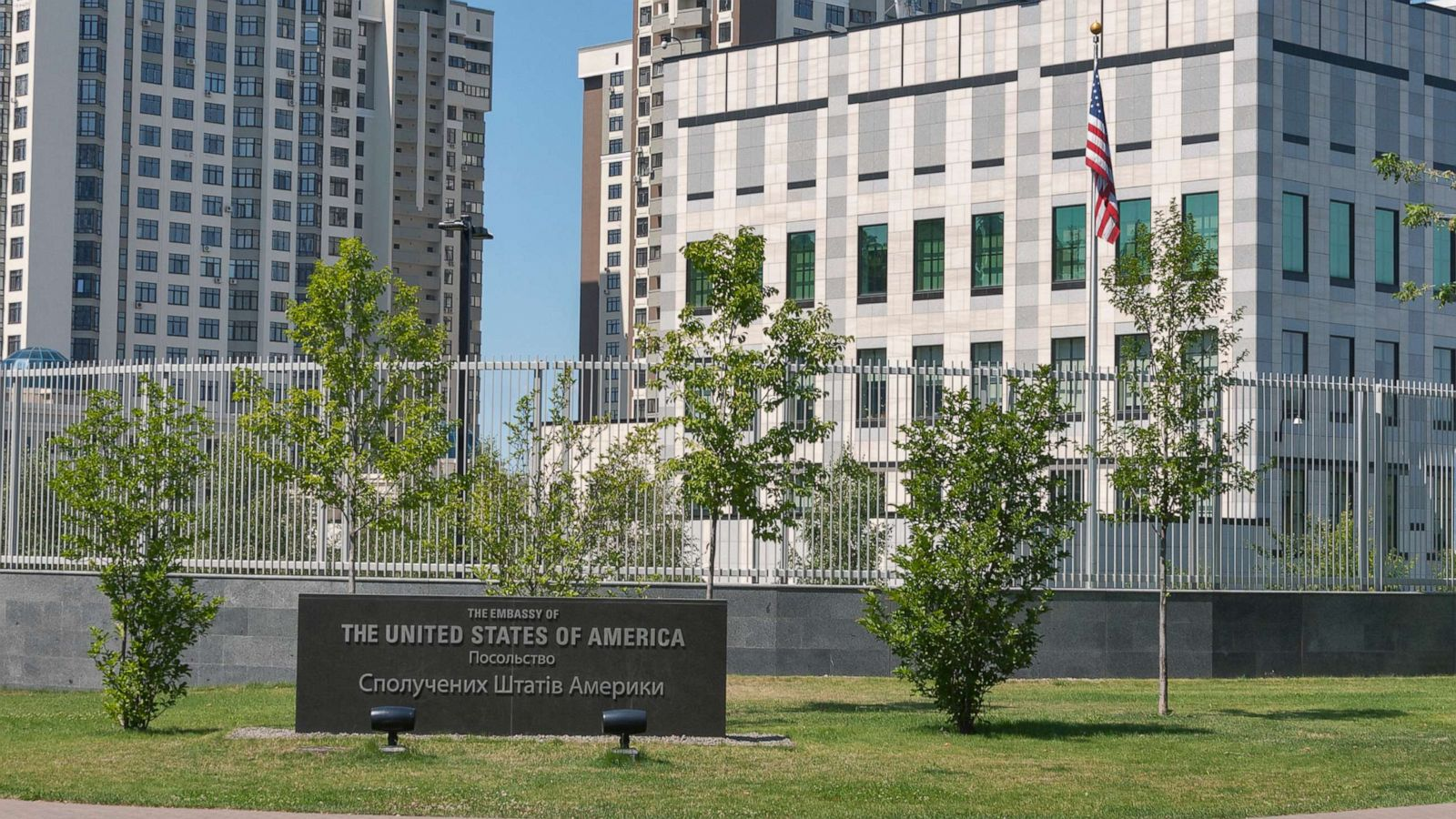The ongoing conflict in Ukraine has entered a critical phase as heightened tensions prompt Italy, Spain, Greece, and the United States to close their embassies in Kyiv.
Concerns about potential airstrikes have driven these nations to take precautionary measures, underscoring the escalating threat to civilian and diplomatic safety in the Ukrainian capital.
Heightened Security Concerns in Kyiv
The decision to close embassies comes on the heels of intelligence reports indicating a potential combined drone and missile attack on Kyiv. These reports, shared by the US Embassy and later corroborated by Italy, Spain, and Greece, paint a grim picture of the increasing risks in the region.
The United States was the first to act, citing information about a “significant air attack” planned for November 20. In response, the US Embassy in Kyiv announced its closure and instructed its employees to shelter in place.
This warning followed an unprecedented move by Ukraine, which used US-made long-range ATACMS missiles to strike Russian territory. Analysts suggest this may have triggered a sharper response from Moscow, exacerbating the already volatile situation.
Read : Drone Jammers Seen on Buses in Russia-Controlled Town in Ukraine
Spain, Italy, and Greece quickly followed suit, announcing the suspension of their diplomatic operations in Kyiv. The Italian Embassy emphasized that its closure was a precautionary measure, urging Italian citizens in Ukraine to immediately seek shelter and adhere to stringent risk mitigation protocols.
Read : NATO Members Pledge 40 Billion Euros in Military Aid for Ukraine in Washington Summit
Similarly, the Spanish Embassy informed its nationals of the closure through email, advising them to stay indoors and monitor updates closely. Greece’s diplomatic mission issued a statement urging citizens to avoid unnecessary travel and prioritize their safety.
Diplomatic Responses and Regional Impact
The closure of embassies by these major powers reflects the gravity of the current security situation in Ukraine. While these nations have expressed solidarity with Ukraine throughout the conflict, the temporary suspension of their diplomatic presence highlights the increased dangers posed by potential Russian airstrikes.
Interestingly, the embassies of the United Kingdom and Germany in Kyiv have opted to remain operational, albeit with reduced capacities.

This divergence in strategy showcases the varying risk assessments and diplomatic approaches among European nations. Germany’s limited operations suggest a cautious balancing act between maintaining a presence and ensuring staff safety.
The announcement by Italy, Spain, and Greece aligns with the US Embassy’s earlier advisory, emphasizing a unified Western response to the unfolding crisis. These closures have further strained Ukraine’s diplomatic connections with key European allies, creating logistical and communication challenges for citizens and officials alike.
Broader Implications Amid Escalating Tensions
The timing of these developments is critical, as the conflict between Ukraine and Russia enters its 1,000th day. Ukraine’s recent use of advanced US weaponry to strike Russian targets marks a significant escalation in the conflict. While this move demonstrates Kyiv’s growing military capabilities, it also risks provoking a harsher retaliatory response from Moscow.
The reported potential airstrike threats on Kyiv are not believed to be linked to Russia’s recent change in nuclear doctrine. However, the Kremlin’s unpredictable responses and the volatile nature of the conflict mean that Kyiv faces an ever-present threat of escalation.

Diplomatic closures also underscore the human cost of the conflict. Embassies serve as vital links for citizens abroad, providing essential services, including evacuation coordination, consular support, and real-time safety advisories. Their closure leaves many nationals in a precarious situation, forced to rely on local resources and their own judgment to navigate potential dangers.
The ripple effects of these closures extend beyond Ukraine. They signal to the international community the severity of the risks posed by the conflict and could potentially influence foreign policies, aid allocations, and military support decisions.
The closures of embassies by Italy, Spain, Greece, and the United States in Kyiv reflect the escalating tensions and growing security threats in Ukraine. As intelligence reports warn of imminent airstrikes, the decision to suspend diplomatic operations underscores the precarious balance between maintaining international support and ensuring safety.
This development also highlights the complexities of the ongoing conflict, now at a critical juncture with unprecedented military actions and heightened risks. The international community continues to grapple with the multifaceted challenges posed by the war, as the humanitarian and geopolitical ramifications deepen.

